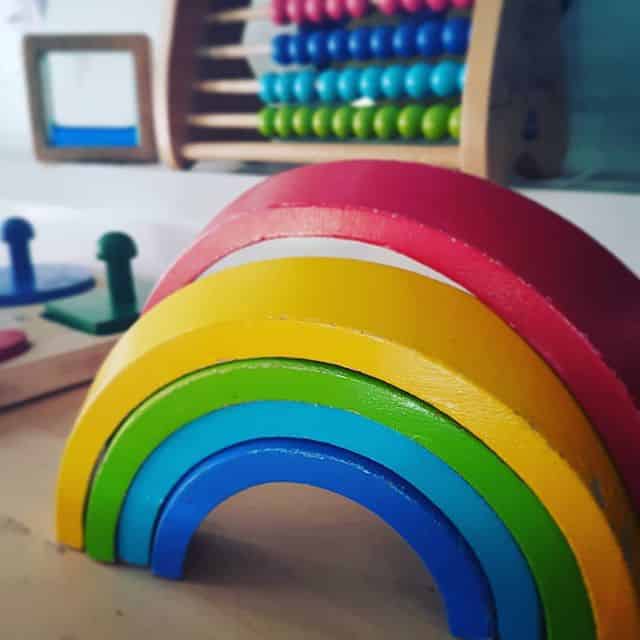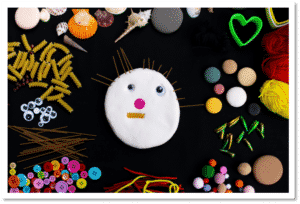This article was first published September 2020
Hello all our families and friends
I’m Donna an Early Years Practitioner and Henry Facilitator. I run Stay & Play sessions and other parent and child sessions at our Children and Family Centres.
Let’s talk about tips on helping us and our children adjust to returning to school.
Tips from professionals to help your child back to school
Hannah Abrahams, a leading educational and child psychologist, offers her advice on how to protect your child’s emotional and mental wellbeing when the time comes to go back to childcare or Reception. For more information or advice visit her website or contact her at hannahabrahamsep@gmail.com or follow her on Instagram @childhoodminded.
Start with your own emotions
As parents, we so often rush to help our children first, but, it’s more beneficial for us to ‘put our own oxygen mask on first’. We are then stronger and more prepared to help our children.
Most children, including infants and toddlers, will be feeling a heightened sense of awareness and will pick up on your emotions if you’re worried, anxious or apprehensive about them returning to childcare or school.
Try and remain calm and positive.
This way, your child will feel safe and secure and more emotionally contained. Use preparatory language with them, maybe show them a photo of their key worker, childminder or teacher or remind them about how their day may look. Know that you are likely to feel a host of emotions when you say goodbye and that’s OK.
Talk about your feelings
Talk about how they might feel going back. Try to name their feelings so you can validate their thoughts and emotions and recognise they will move and change.
Sometimes it is helpful to talk with young children about a traffic light of emotions.
Are they feeling Green – Good to go, happy and content? Or maybe they are on Amber – feeling a little worried. Make an emotions traffic light together to have visible on the fridge.
Acknowledge that they may feel worried about saying goodbye at the setting or school door.
For younger children you can give them a transitional toy, such as a little bunny from home (but check with your childcare provider first that this is OK and in accordance with their infection control measures). In doing this you are letting them know that they are always in your mind too. Notice how challenging and courageous they are being. Be in close contact with nursery, childminder or teacher so that they can let you know how well your child is settling too.
Separation anxiety

Books including “The Kissing Hand,” or “On a Pink String,” present sensitive stories about saying goodbye to your main caregivers while knowing that you are always connected,
Remember your child will mirror your responses too and children are naturally intuitive beings. Try to talk positively and honestly about the changes involved in returning to nursery. Reflect that it may feel worrying but also exciting too.
Ask staff to send a photo of the room and how it may look different so you can prepare your child.
Be honest that sometimes you don’t have all the answers.
Be consistent and prepared
Always be consistent in your promises about returning, even if it means agreeing to bring the exact snack that was requested when you pick them up later. It helps with emotional containment and a sense your child feels listened to.
Manage expectations
Finally, schools, nurseries and childminders will be aware of the very great emotional needs of their pupils and will no doubt be offering additional support at this time. Many will be in touch beforehand to communicate how things will be different for children.
For those old enough to understand, take time to discuss the changes that are going to happen. They will then feel prepared, reassured, and know what to expect when the time comes.
Young Minds are the UK’s leading charity fighting for children and young people’s mental health. Below are 8 tips from Young Minds Parents Helpline team on how you can support your child to transition back to school life:
1. Talk to your child about how they are feeling about going back to school and try not to make assumptions. Ask them if they are worried or feel scared about anything, but also if they are excited about or looking forward to something. No matter how your child feels, let them know that it is completely normal to feel a mixture of emotions and that everyone will be in the same boat. Have a look at more advice on starting a conversation with your child.
2. Provide your child with as much information about their new routine and school day as you can. This will help them to prepare for any changes that have been made to the timings of their day, the layout of their classroom, their peer groups and playtimes. For younger children, it can be helpful for them to visualise these changes – so ask your child’s school if they can send any pictures to help make things feel more familiar.
3. Reassure your child. During the lockdown we have been told to stay at home, remain socially distant from others and wash our hands regularly. This
means children may find it difficult to go back to school because it will be a huge change from what they have been asked to do during the pandemic. Talk with your child about ways they can stay safe at school, such as washing their hands before and after eating, and reassure them that the school are putting measures in place to keep them safe.
4. Re-establish a routine to help ease into school life. During lockdown it is understandable that your family’s routine may have changed. Children are likely to have been waking up later or going to bed later. To help them get ready for school, try to gradually get them back into their usual morning and bedtime routines as they get closer to their return date.
5. Don’t put pressure on yourself. The transition back into school is likely to take some time. Lots of children will experience ups and downs. Try your best to support, reassure and comfort them, without putting pressure on yourself to make sure their homework is done, or they settle into a new routine straightaway.
6. Think ahead. As well as reflecting on what has happened during the past few weeks, it is important to help children develop hope and a sense of excitement for the future. At a time like this, it can be hard to feel positive, but identifying the things that they can look forward to willing help them to realise that the current situation won’t last forever, and their feelings will change.
7. Seek support if you need it. Transitioning back to school after being in lockdown is no easy task. You may find that your child struggles to get back into school or experiences difficulties while they’re at school. If this is the case, reach out to your child’s school as soon as you can so that you can make them aware of the challenges and work together to support your child. If you are concerned about your child’s mental health and you think they need professional support, speak to the school and your GP about the best next step.
There is lots more helpful information about helping children returning to school on our website: https://www.eyalliance.org.uk/family-corner
See you next week
Take care
Donna





